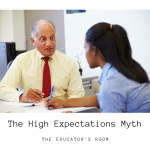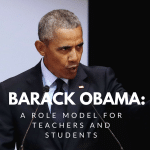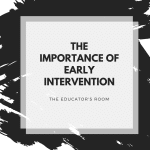What would an ideal school look like? My wife and I, like many educators and parents, have had this question thrust to the forefront as part of the COVID-19 crisis. Overnight, my wife and I–both trained, veteran middle school teachers–have had to set up The Sutton School to teach our own kids. We’ve made all the rules and set up all the structures for The Sutton School, and it is our version of the ideal school.
Week 2 at The Sutton School ended Friday, and it varies significantly from a real school. In essence, the 5 observations below highlight the biggest problems and frustrations of real school while also hinting at solutions for creating the ideal school.
1- Less Stress More Flexibility
Almost immediately, my wife and I agreed we needed some semblance of structure. It wasn’t just for the kids mind you. Remember, my wife and I are veteran teachers who have had their daily routines managed by the chiming of a bell for years. We laid out a schedule. You probably saw a similar one on social media.
Now, morning adventure time is scheduled from 9 am-10 am. The only required activity for this hour is to catch up with the duck family residing in our neighborhood stream. Otherwise, adventure time has involved treks to find the sources of our neighborhood streams, finding noisy woodpeckers in the trees, and picking up trash in our community. Adventure time has never ended by 10 am, which has put a damper on the reading and math instruction scheduled to start at 10 am.
We haven’t stressed about it.
This sort of flexibility to get lost in an activity doesn’t occur in school. The bell rings. Everyone must go. If students are immersed, they leave. There is no wiggle to this. We’ve allowed for wiggle.
2- Individual Attention
My youngest daughter just turned 5, and she loves math. Up until opening The Sutton School, I was totally unaware. Talk of math time brings a smile to her face.
Getting her 5s and 2s facing the right direction is very serious, and her pride in showing her completed math problems to her mom and sister is astounding. But, that isn’t surprising. I’ve seen kids enjoy learning. I see it all the time. The difference is when she is struggling.
She’s having a difficult time sorting out the difference between adding and subtracting. She can do one process and then the other. But, if I give her problems with both on the same page, she’ll either add all of them or subtract all of them. Something is amiss.
With her, I’ve got time to diagnose this issue, talk with her, design some additional practice, monitor her work on the new problems, and repeat as necessary. This process has seen 30, 45, even 60 minutes fly by. I don’t do this at school. If I’m lucky, I spend 2 minutes talking individually to a student. In a class of 30 or 35 students, there simply is not time to be this engrossed in a student’s progress.
[bctt tweet=”If I’m lucky, I spend 2 minutes talking individually to a student.” username=””]
In real school, we have individualized education plans (IEPs), and we talk about personalizing student’s learning; however, there isn’t much individual care provided to kids. It’s a strange thing for an institution designed to care for kids. No other place designed to help people learn, heal, or grow fails to provide individual attention. None. In college, students have an advisor to guide them. If you are sick, your doctor sees you, not 30 people with similar symptoms. When you are rehabbing an injury, your physical therapy sessions focus on your individual needs. In real school, we talk about this process but don’t practice it.
Getting to work through my kids’ problems is joyful. Real school doesn’t have that joy.
3- Creative Time
After lunch, The Sutton School allows kids to do as they please for an hour. They can play with Lego sets, color, draw, play with chalk in the driveway, read, play a game, whatever their little minds can come up with. It’s a totally pupil driven time and space. And, they love it.
With testing mandates and required curricula, it’s difficult, bordering on impossible, to allow for such student freedom. Recess, lunch, and the arts are the first victims of such a system.
The Sutton School hasn’t fallen into the same trap.
4- Example Setting
My oldest daughter, Brooke, is almost 7. Her vocabulary and reading development have been astounding this year. However, until this week, I have not seen her pick up a book to read independently. Did she know before this week that reading can be an enjoyable, solitary task? I doubt it. We read a lot, but not when she’s around.
The Sutton School allows students creative time, it also allows the teachers to undertake tasks of their choosing as well, like reading. I’ve been able to set an example for my kids by doing the things I like to do and want them to do. In turn, I’ve powered through Ibram X. Kendi’s How to Be an Antiracist, and I’m currently working on Freedom Stone
by Jeffrey Kluger.
So, when Brooke dragged a lawn chair and a book to her own special spot in the yard yesterday as we did sidewalk drawing outside, my heart swooned. Was it because she saw her parents reading that she took the initiative? It couldn’t have hurt.
5- No Testing
John Dewey is my favorite educational philosopher. His attitude was that learning and assessment were one and the same. It was impossible to separate the journey of learning and the culmination of that learning. Why take a test if you’ve already engaged in a rigorous, thoughtful, and reflective learning process?
In setting up The Sutton School, it hasn’t been on our radar to set up a testing system. We didn’t consider it because we don’t need it. We have been assessing our pupils. Our students get ample individual, personalized instruction. They don’t need a test. Their teachers know exactly where they are in the learning process.
Sutton School Takeaways
I miss my students. I miss my colleagues, but I do not miss school. It is not feasible to establish real schools as replicas of The Sutton School; however, it is possible for the ideal school to be crafted in the image of The Sutton School. Students, families, and teachers would be better off, and it might even become a joyful place.
So, whether you are a teacher, a parent, or a student, take time during this COVID-19 crisis to think about what the ideal school looks like. COVID-19 is going to change the way our society functions. Let’s make sure those changes are for the better.







Thank you for this reminder of what really matters in great teaching. I had expected to read about technology implementation, the best use of online resources and so on, and instead you merely, and quite correctly, list the fundamentals. As I understand your text, motivation and time are key, for both the student and the teacher, and enough creativity to spot teaching resources in things that surround us.
As I spend the period ahead of us teaching my students online exclusively, I will try and remember that taking time to consider every student’s needs and allowing for some flexibility are more important than choosing the most attractive tools or bombarding students with resources they will struggle to process.